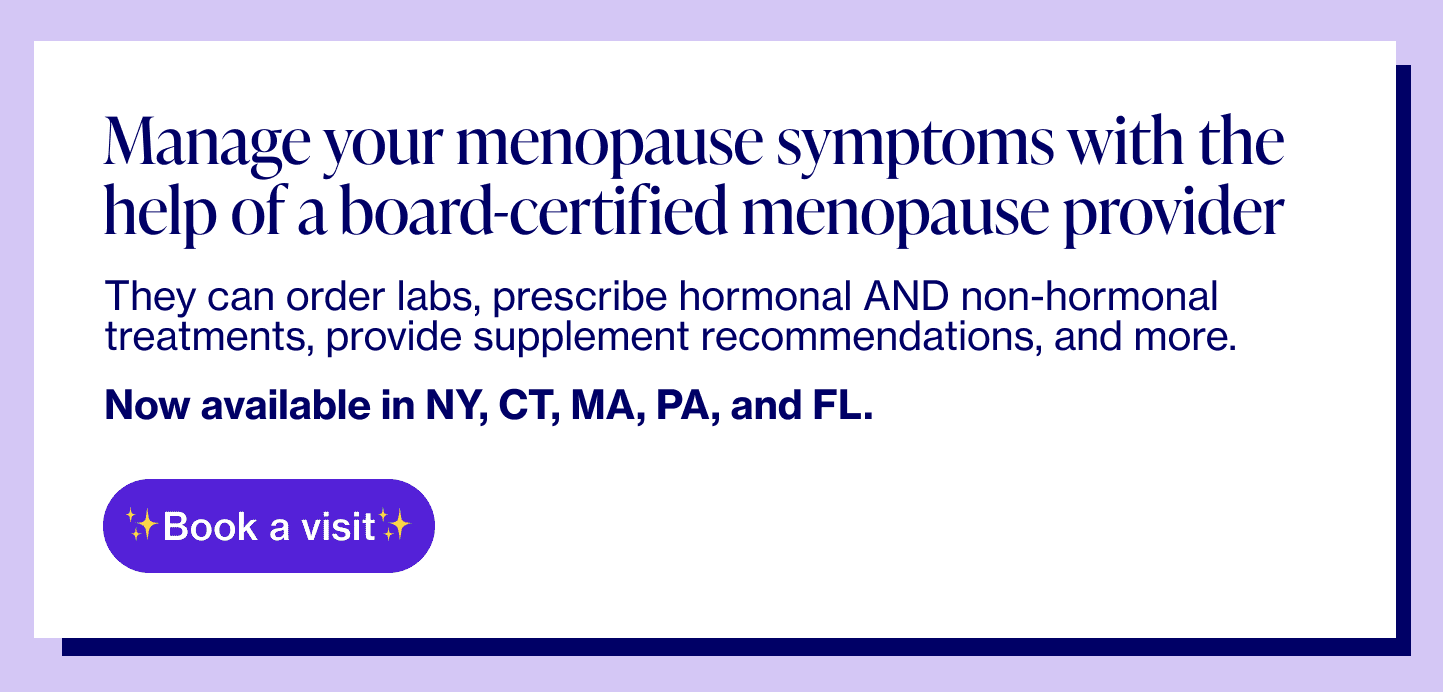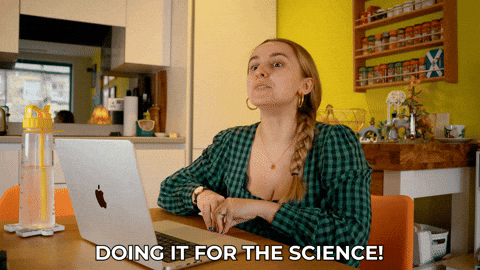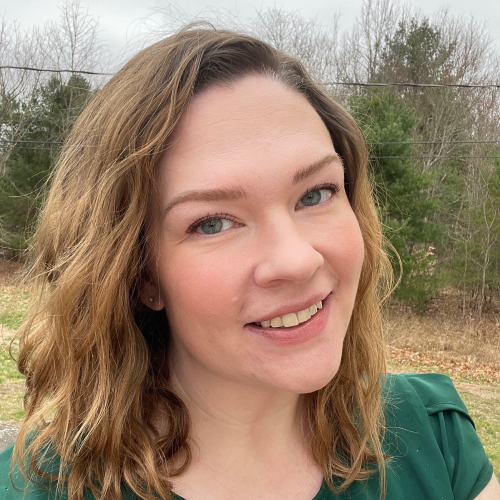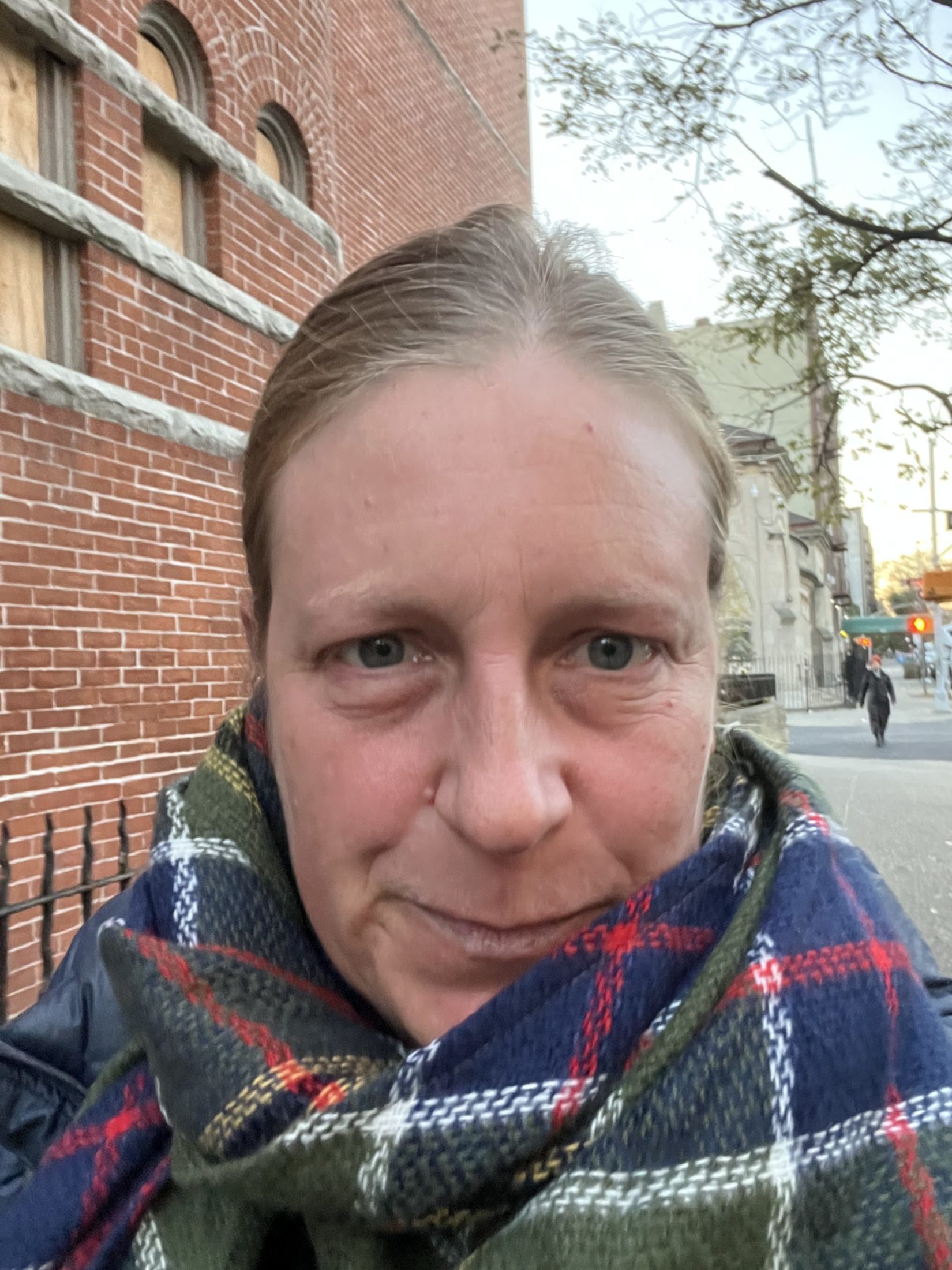
Published on Jun 17, 2024
Last modified on Apr 08, 2025
An Elektra Patient Opens Up About The Menopause Symptoms That Took Her (And Her Doctors) By Surprise
4 min read
When Trish Solsaa finally hit the 12-month no period mark, she brought Japanese pastries to celebrate. My friend asked, “what is this for?” And I said… “I’m one year without a period today!”
And while it’s been a period of adjustment to get used to this new normal, Trish — a long-time Brooklyn resident who recently turned 51 and has spent her career as a spatial designer — will be the first to point out the silver linings… “you don’t have to worry about white pants EVER again!”
But the years-long lead-up to this moment wasn’t easy. Below, Trish opens up about how prepared she felt going into menopause, what symptoms totally took her (and her doctors) by surprise, how she leverages Elektra to her advantage, and her ~conflicted~ feelings about it all.
On how prepared she felt going into menopause…
After 9/11, I volunteered in a restaurant in Tribeca making food for first responders for six weeks. My mom came out and helped, and she had to do food prep in the walk-in cooler because her hot flashes were so insanely intense…and this was February. She took nothing for it (maybe just black cohosh for a bit) because she thought…this is just what you do. So when I was approaching menopause, I literally thought to myself…I need to get a restaurant job so I can go prep in walk-in coolers. That’s how little I knew, because there’s also this notion that this happens to older people. So it took me by surprise.
On her unexpected symptoms…
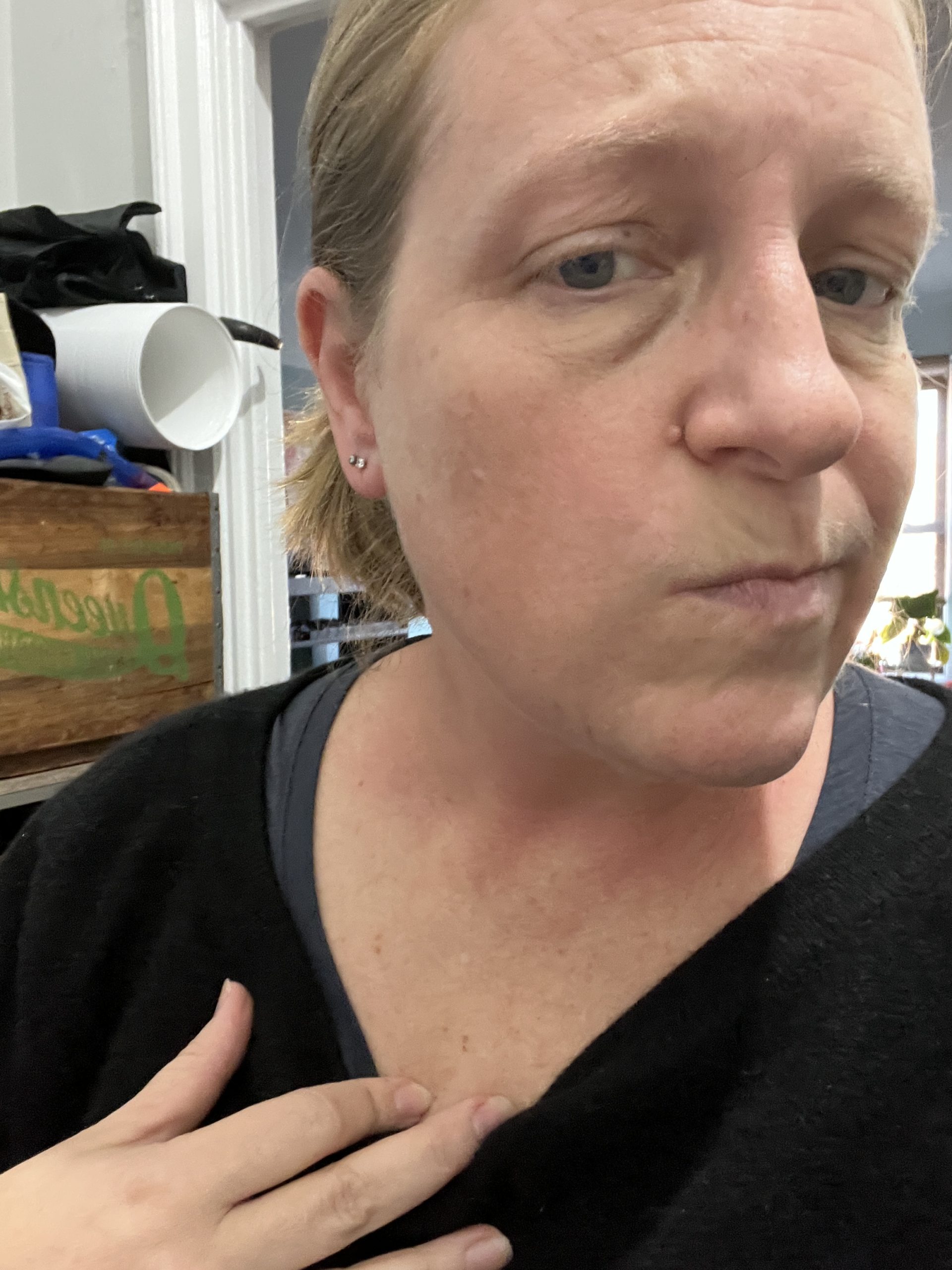
I was having the strangest symptoms. My body would literally go bright red with heat rashes, and it would expand out. I was in an interview when my face started blotching out, and he was like…doesn’t that hurt? And I thought to myself, I’m losing all credibility.
It’s bad enough being a woman at this age trying to go back into the workforce, and now I have to deal with this?
Because of the conversations I had with my Elektra clinician and Guide, I learned that my body was retaining heat under the dermis, and I was physically having a reaction to it in the form of rashes. No doctor ever told me that beforehand. It’s like, okay sorry, guess that has never happened to a man.
“I was in an interview when my face started blotching out, and he was like…doesn’t that hurt? And I thought to myself, I’m losing all credibility. It’s bad enough being a woman at this age trying to go back into the workforce, and now I have to deal with this?”
On taking things into her own hands…
Once you realize it, you research the f*ck out of it. And your eyes are opened, and it’s like BOOM. Let’s do this. And that’s where Elektra comes in. It’s empowering.
The best part was talking to [my Guide], Beth, and knowing that she’s a medical professional and that this is her passion. She just *got* it and would ask…do you need to vent? How are you doing on every level? Beth explained that my first tangible physical symptom was the plantar fasciitis I developed when I was 42. I had heard about vaginal dryness, not that the joints also dried out. The irritability that was also omnipresent in my mid-40s was also a symptom, which was another unknown. Eye opening.
“The best part was talking to [my Guide], Beth, and knowing that she’s a medical professional and that this is her passion.”
I’ve gotten my heat rashes under control, but symptoms change. So in two months, I might be like…oh crap, where do I go and find this new transitioning piece of what’s next? So I love the fact that [Elektra] is there and has 1:1 support and information to refer to. I tend to not make recommendations, but I tell all my friends about how Elektra transformed my menopause awareness and ability to move forward.
On working with her Elektra clinician AND gynecologist…
I came out of my conversation with Jackie [my Elektra clinician] with a checklist that I shared with my gynecologist to instruct her on what I needed. I’m grateful that my gynecologist was receptive to my input, and also that she continued with her research since she acknowledged not having specialized working knowledge of menopause (and there isn’t much information out there).
On how she feels about it all…
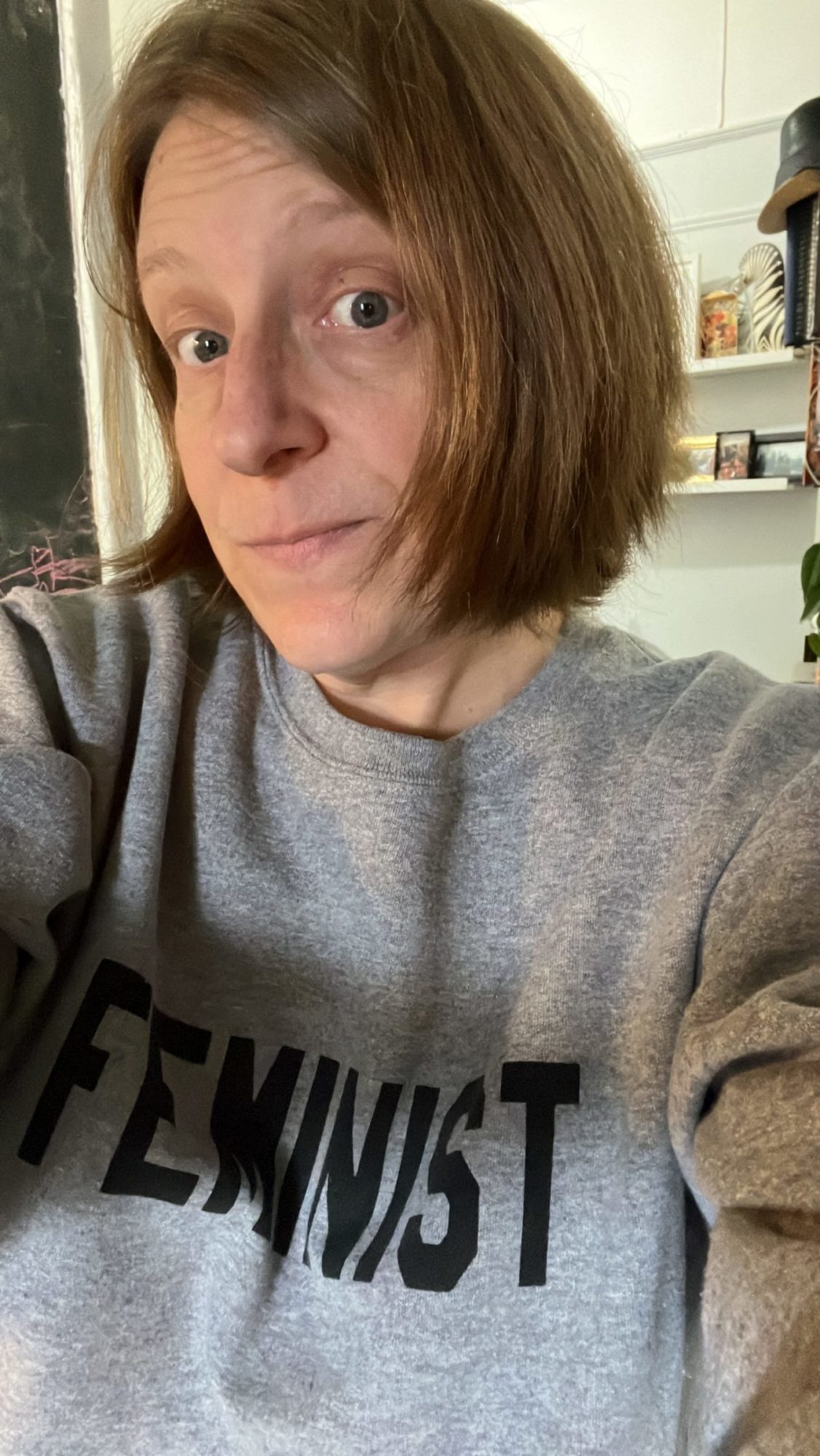
The known problem is that menopause isn’t totally understood, so it isn’t taught at the levels needed — especially for Gen X’s requirements. So I started following people on social media and began reading all the damn research-based books available.
Sad part was I wasn’t necessarily surprised. I’m disappointed that women’s health isn’t prioritized and we are fighting to be fully considered. In my career, I have banged my head on many a glass ceiling to be heard, and this just feels like another thing that we have to demand for ourselves and advocate for the generations coming.
I’m confused that other generations put up with that blanket response of “it is what it is,” “you are aging, deal with it.” I’m f*cking tired at this point, but it is quite helpful knowing I have the resources and support for this and the next set of shifts on this journey.
“In my career, I have banged my head on many a glass ceiling to be heard, and this just feels like another thing that we have to demand for ourselves and advocate for the generations coming.”
